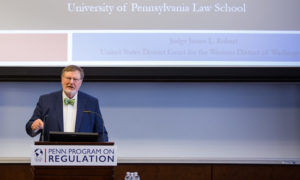
The Supreme Court invalidates California ban on indoor religious services, FEMA authorizes reimbursements for funeral expenses for COVID-19 deaths, and more…
IN THE NEWS
- The U.S. Supreme Court held that California Governor Gavin Newsom may not continue the ban on indoor religious services to limit the spread of the coronavirus. The Court allowed the 25 percent capacity limit on indoor worship spaces to remain in place. Justice Neil Gorsuch, Justice Clarence Thomas, and Justice Samuel Alito supported lifting all of the restrictions on religious gatherings, arguing that California had “openly imposed more stringent regulations on religious institutions than on many businesses.” Justice Stephen Breyer, Justice Sonia Sotomayor, and Justice Elena Kagan advocated leaving all of the restrictions in place, claiming the Court failed to defer to scientific research and calling the decision a “foray into armchair epidemiology.”
- U.S. Senate Majority Leader Chuck Schumer (D-N.Y.) and U.S. Representative Alexandria Ocasio-Cortez (D-N.Y.) announced that the Federal Emergency Management Administration (FEMA) authorized reimbursements of up to $7,000 for funeral expenses paid by low-income families who have lost a loved one to COVID-19. Senator Schumer and Representative Ocasio-Cortez sent a letter in April 2020 to then-FEMA Administrator Peter Gaynor requesting the funding and support of $2 billion for funeral assistance in the stimulus omnibus bill passed in December 2020. According to the Congressional Research Service, the Trump Administration did not authorize funeral reimbursements at any time, even though the additional $2 billion had been earmarked by the U.S. Congress for the initiative.
- Colombian President Iván Duque Márquez and United Nations High Commissioner for Refugees Filippo Grandi announced that Colombia will offer approximately one million undocumented Venezuelan migrants with a 10-year residency permit, followed by an opportunity to obtain a resident visa. President Duque reportedly tweeted that the policy would provide “care to those fleeing the dictatorship,” by offering, for example, access to social services such as health care and COVID-19 vaccines to Venezuelan migrants. António Vitorino, the director general of the International Organization for Migration, stated that the “generous temporary protection status” will facilitate the migrants’ “socioeconomic integration.”
- Judge Drew Tipton of the U.S. District Court for the Southern District of Texas extended a temporary restraining order against the U.S. Department of Homeland Security’s directive to pause deportations of undocumented citizens. Judge Tipton asserted that there may be “irreparable harm to Texas” if the directive is implemented before the case is litigated. Texas Attorney General Ken Paxton lamented that the Biden Administration failed to “consult and cooperate with Texas” when allegedly deciding to “violate federal immigration law.” But Kate Huddleston, an attorney for the American Civil Liberties Union of Texas, stated that the deportation pause was essential to “ensuring all people are treated with dignity and fairness.”
- The Virginia House and Senate voted to abolish the death penalty in the commonwealth. Virginia Governor Ralph Northam voiced his support for the bill, calling the death penalty “fundamentally inequitable” and “inhumane.” The American Civil Liberties Union praised the House and Senate votes and noted that “Virginia will be the 23rd state to have formally abolished the death penalty.” Although most states no longer allow executions, the American Civil Liberties Union pointed out that the federal government executed 13 people last year.
- The U.S. Department of Education announced it will conduct a national survey to gather data on school reopenings and the impact of COVID-19 on students. The survey will examine the extent of in-person or remote learning, student enrollment variation by demographic factors, and attendance rates in the various learning models. The Education Department announced the survey as a response to President Joseph R. Biden’s executive order requiring “the collection of data necessary to understand fully the impact of the COVID-19 pandemic on students and educators, including data on the status of in-person learning.”
- The Biden Administration requested that a federal court postpone a hearing about the Dakota Access Pipeline for two months to give new officials time to become familiar with the ongoing litigation. Environmental groups and indigenous tribes sued the Trump Administration for the pipeline’s potential harmful effects on drinking water and sacred sites. After President Biden revoked the permit for the Keystone XL Pipeline, the environmental groups began pressuring the President to revoke the Dakota Access Pipeline’s permit as well.
- Acting Chair of the U.S. Securities and Exchange Commission (SEC) Allison Herren Lee authorized senior members of the agency’s enforcement division to issue Formal Orders of Investigation, which enable members of the division to take sworn testimony and issue subpoenas. Those senior members were previously authorized to approve formal orders until 2017 when former SEC Acting Chair Michael Piwowar required that SEC top leadership, made up of political appointees, approve all SEC enforcement orders. The number of enforcement actions taken has reportedly decreased each year since 2017. Dennis M. Kelleher, president of Better Markets, praised the action, saying that “money moves at the speed of a keystroke, and the SEC must move equally fast to protect investors and markets and redelegating this authority will allow it to do that.”
- U.S. Customs and Border Protection reopened the public comment period for a proposed rule to collect facial images from all children and adults entering or leaving the United States. Under the proposed rule, U.S. citizens could opt out of the program, but experts have reportedly raised doubts that people would undertake the additional screening necessary to do so. In a press release, the agency claimed that its facial comparison algorithm shows “virtually no measurable differential performance in results based on demographic factors” but did not present evidence to support that claim. After collecting the facial images of 62 million travelers, the agency has prevented 400 people from entering the country with fake documents since September 2018. Jorge Loweree, director of policy for the American Immigration Council, reportedly said that the rule is still likely to be adopted and that the comment period extension is just a tactic to defend against future litigation.
WHAT WE’RE READING THIS WEEK
- In an op-ed in the The New York Times, Michelle Alexander examined the connection between the subminimum wage for tipped workers, the legacy of slavery, and the dual discrimination Black women confront on the basis of their race and sex. Alexander argued that the subminimum wage for tipped workers disproportionately affects Black workers because Black people make up a large share of the tipped workforce, and because they are more likely to receive lower tips due to customer bias. Alexander urged the U.S. Congress to pass the Raise the Wage Act, which would phase out the subminimum wage for tipped workers.
- In a recent National Bureau of Economic Research working paper, Marco Di Maggio, professor at Harvard Business School, and Vincent Yao, professor at Georgia State University’s J. Mack Robinson College of Business, examined the characteristics of individuals who borrow from financial technology companies—or “fintechs”—instead of banks. Di Maggio and Yao found that fintech borrowers are more likely to default on their loans and become increasingly indebted because the borrowers spend their loans rather than pay off existing debt. Di Maggio and Yao emphasized that policymakers should provide “clearer guidelines and regulatory scrutiny” for emerging fintechs.
- Latanya Sweeney, professor at the Harvard Kennedy School, and attorneys Michael von Loewenfeldt and Melissa Perry reported in the Journal of Technology Science that common methods for anonymizing personal income and medical data fail to meet the privacy standards of the Health Insurance Portability and Accountability Act and the Freedom of Information Act. In one example, Sweeney, Loewenfeldt, and Perry matched names in local newspaper reports to 43 percent of Washington state’s supposedly-anonymized hospitalization dataset, which included financial and medical diagnostic information about individuals. Sweeney, Loewenfeldt, and Perry explained that more rigorous methods for anonymizing data exist but expressed uncertainty about regulators’ ability to enforce the use of those methods.
FLASHBACK FRIDAY
- In an essay in The Regulatory Review, Judge Fern Fisher argued that an adversarial judicial system—which assumes individuals have lawyers—fails to provide justice for low-income individuals who represent themselves in court. Judge Fisher recommended that courts assist parties with understanding the law and the weaknesses of their case. Judge Fisher recommended, for instance, that discovery rules be removed or simplified so parties can present their proof more easily.



